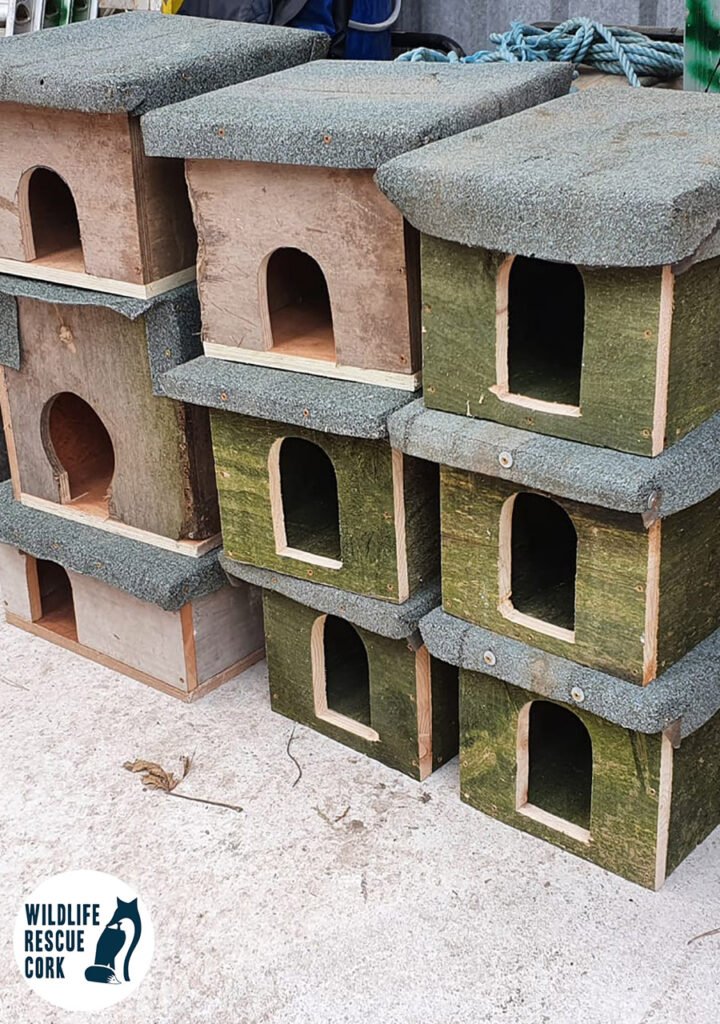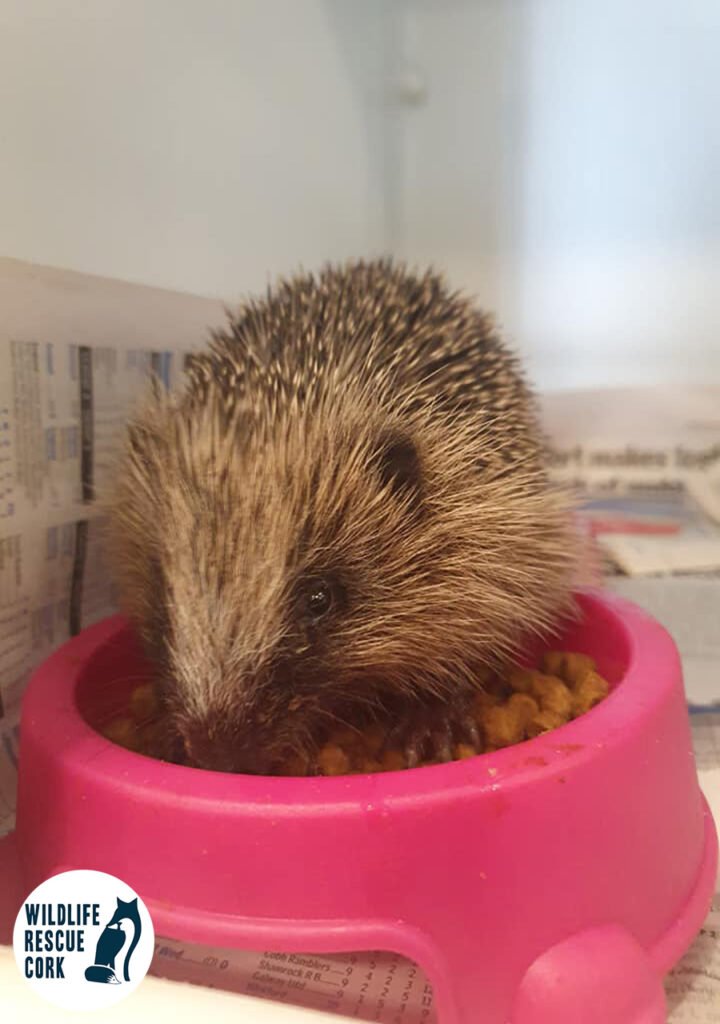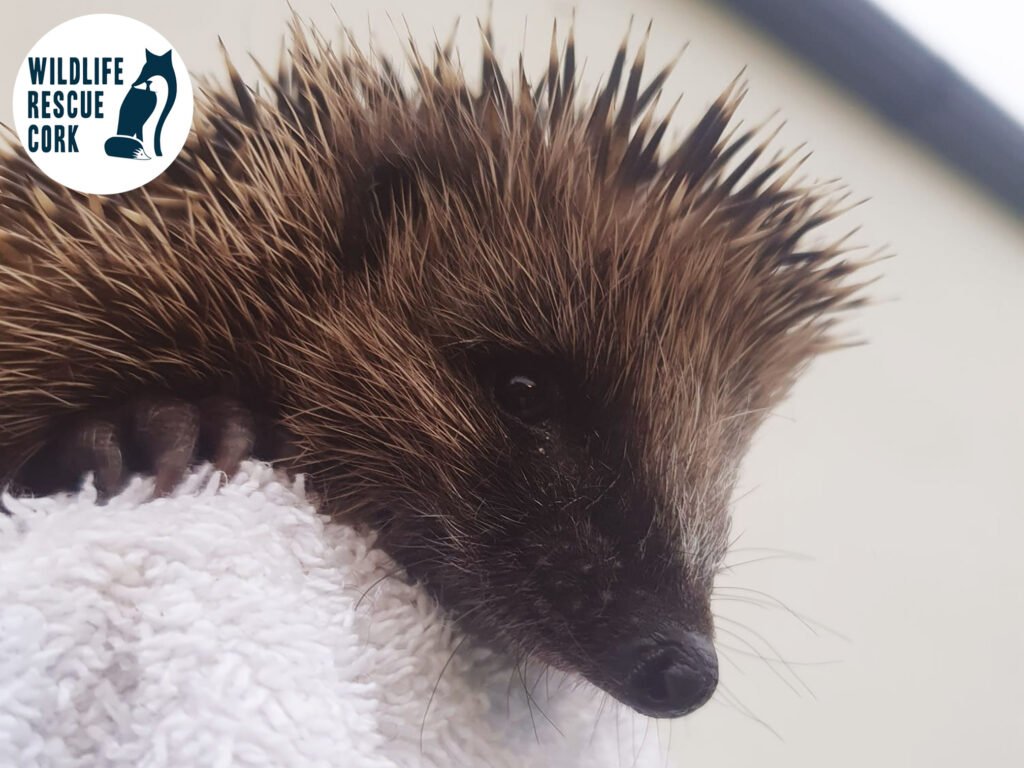
• They are found unresponsive on the roadside or wandering down a road •
• Laying out in daytime ‘sunbathing’, surrounded or circled by flies •
• Obvious injury to limbs, head, inability to walk or limping •
• If unable to curl up fully or a limb is sticking out of the curl •
• Unresponsive but not in nest (hedgehogs only hibernate in nests) •
• If it is under 650g in weight (1.4lb) by November/December as winter sets in •
• Has it an obvious injury (cuts, puncture wounds, open wound)? •
• Stuck in cattle grid, drain, netting, fencing. DO NOT RELEASE, they may have constriction injuries and need veterinary help •
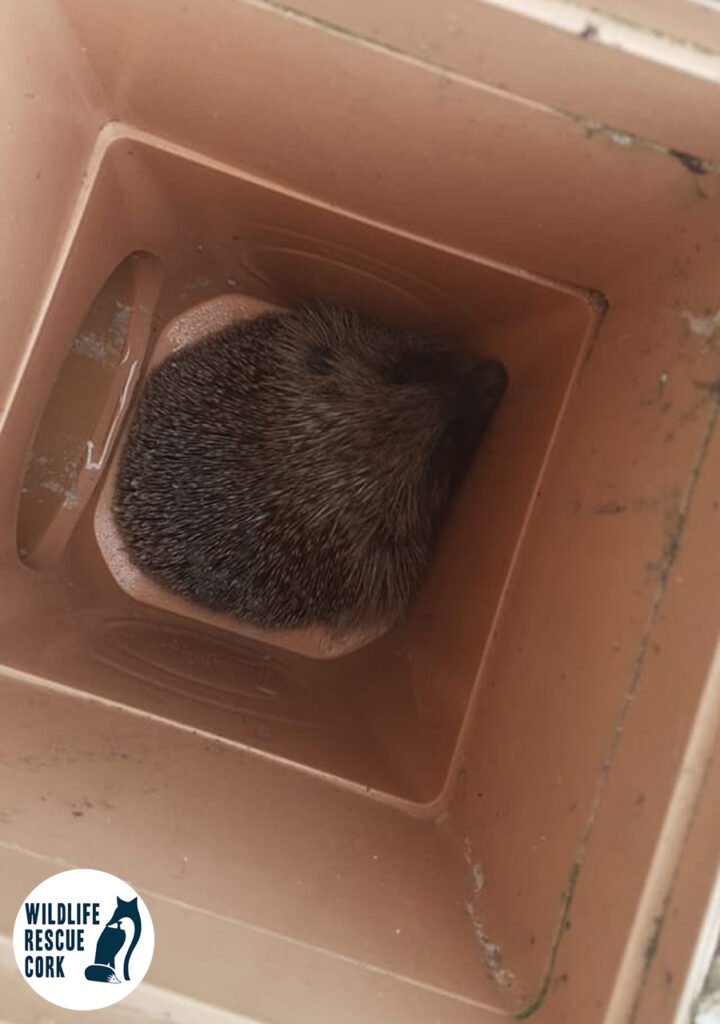
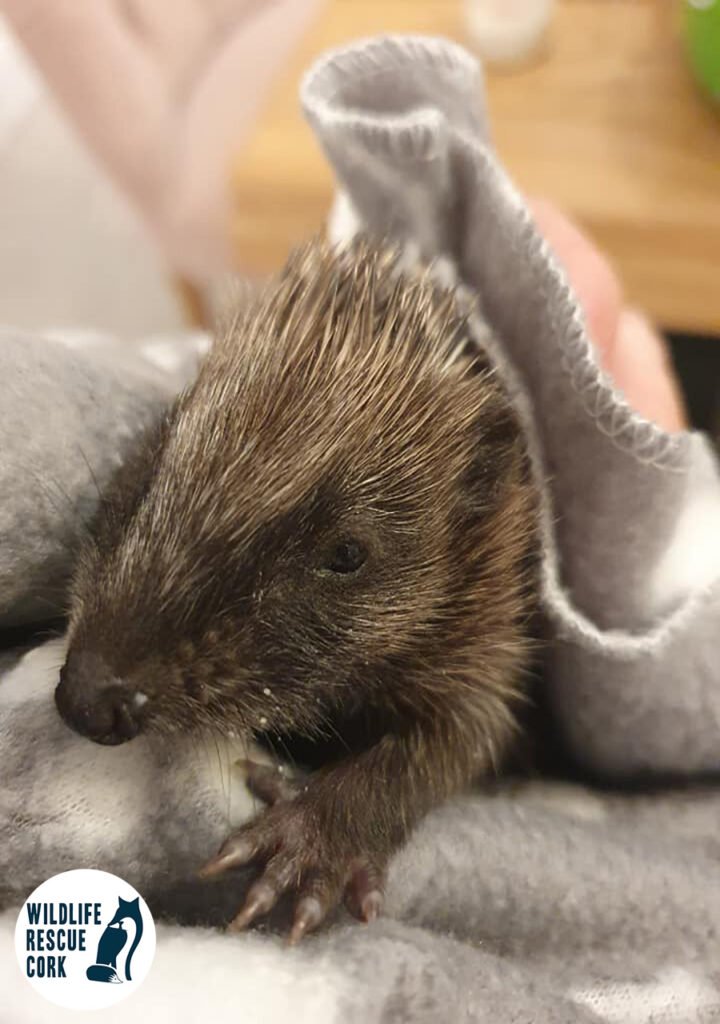
• Injured baby hedgehog (can be heard ‘peeping’ a high-pitched noise). Often out in daytime looking for its mom that didn’t return. Often flies will be seen around them •
• Babies the size of tennis balls or smaller out in open. Get advice immediately •
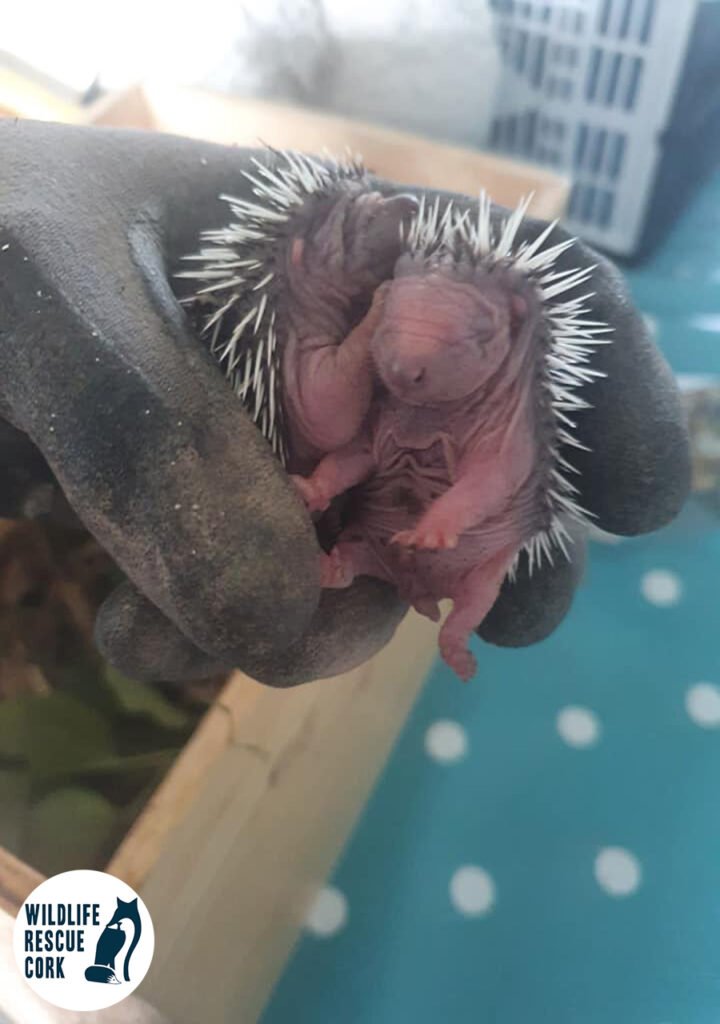
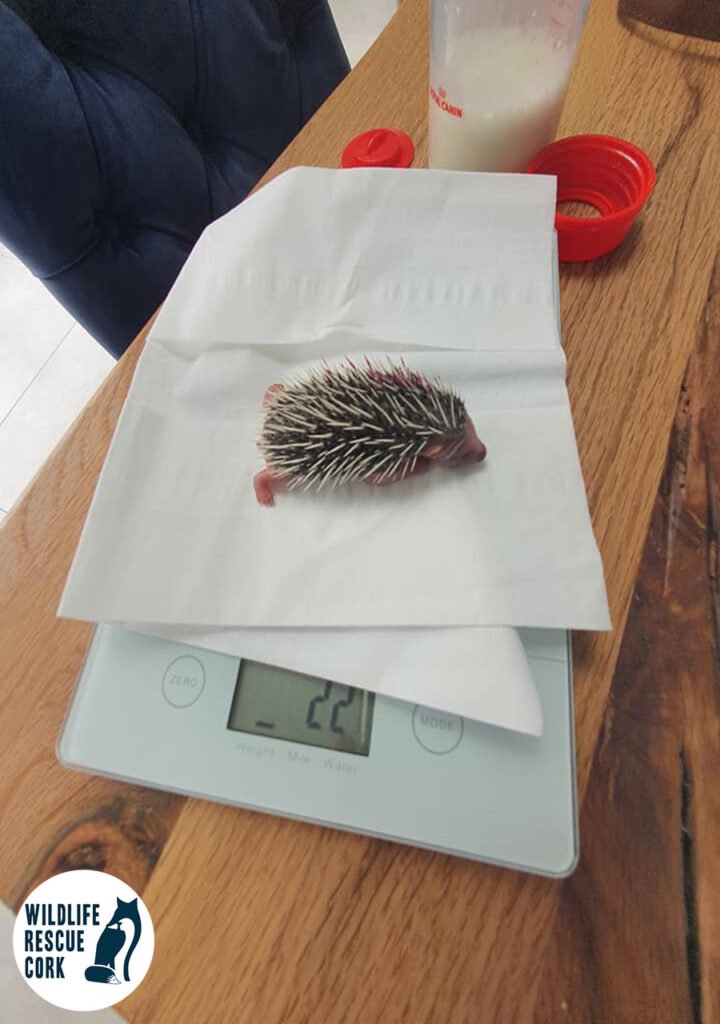
• Depending on the weather hedgehogs can hibernate at any point in winter. If you are gardening and uncover a hibernating hedgehog do not move it. Cover it over with a thick layer of dry leaves and leave it alone. If you see it out in the garden supply both wet and dry cat food and water in a shallow bowl •
• NEVER FEED MILK. This can cause severe diarrhoea and stomach upset and can lead to death. Get advice before feeding any wild animal as it can often do more harm than good •
• Pick up animal using a towel or gardening gloves •
• Place in a cat carrier or high sided box (they are great climbers) •
• Put the towel in the bottom of the box and cover with a fleece or shredded newspaper to give it cover. Keep the box somewhere safe, warm and quiet •
• Do not leave outside where predators can get it •
• Keep children and pets away •
• Do not pet or talk to wildlife as it causes undue stress •
• IF providing food, use wet cat food pouches and dry cat nuts. A shallow dish of water is essential for wildlife •
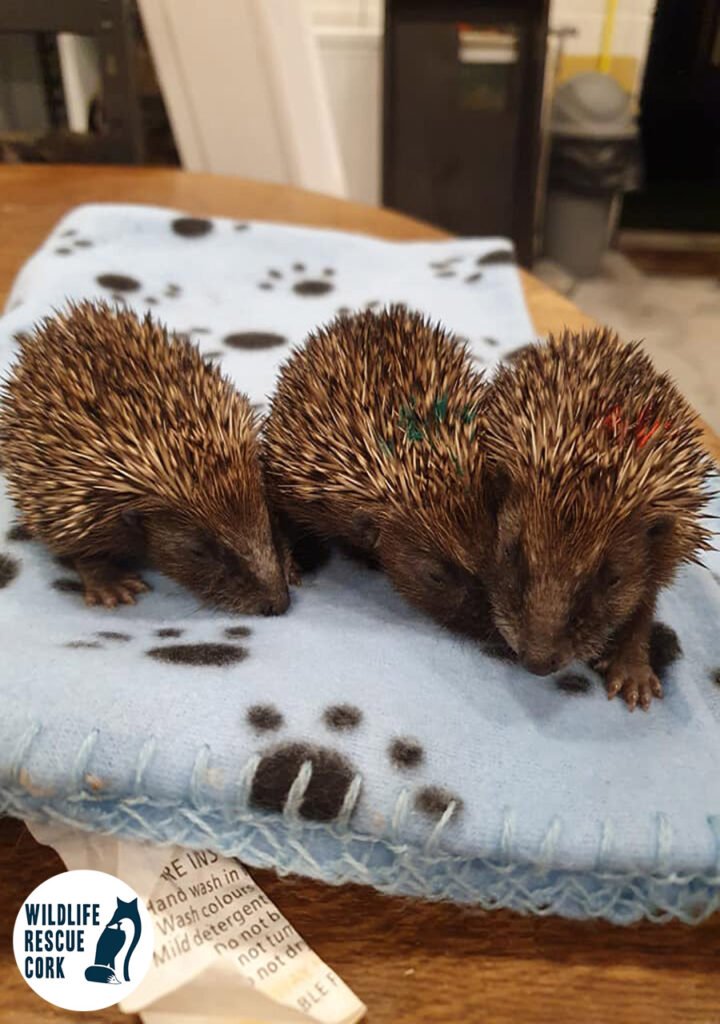
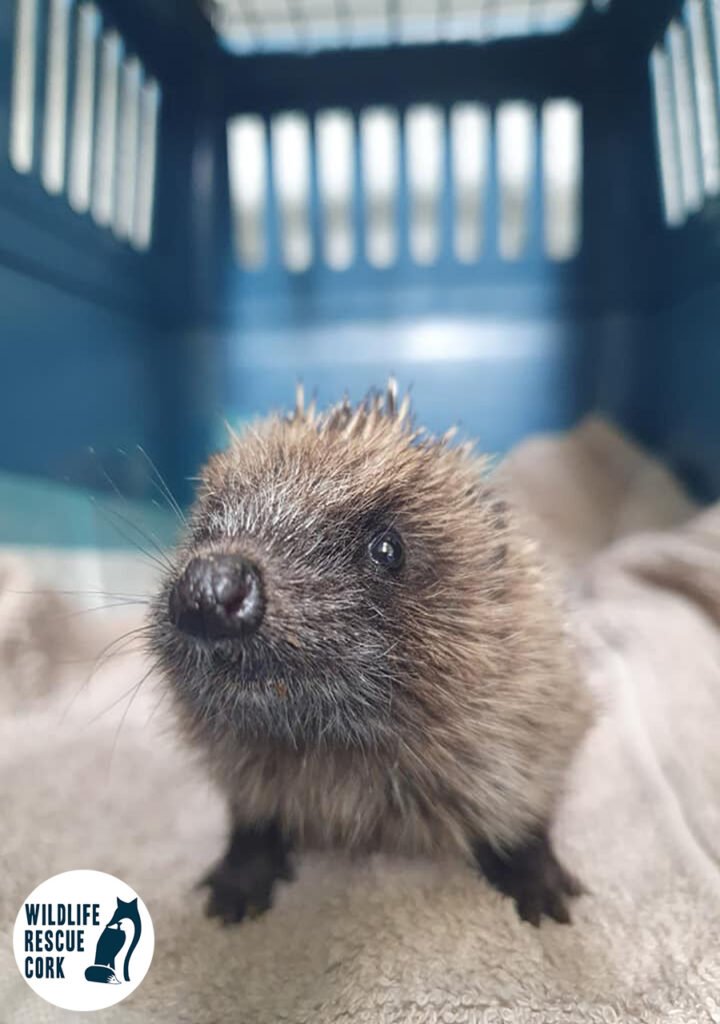
• Strimming injuries – gardening injuries (ALWAYS CHECK AREAS THROUROGHLY BEFORE STRIMMING). Hedgehogs might be asleep in there and their reaction is to curl up to danger and not run away. We have seen horrific injuries over the years •
• Dog bites – keep your dog on a lead at night time when walking. If you know hedgehogs frequent your garden at night •
• Setting fires, such as bonfire night, a big pile of logs and leaves looks like a lovely house to a hedgehog. ALWAYS move the full wooden pile and check for hedgehogs prior to lighting •
• Poisoning – putting out slug pellets might help you save your garden veg but it also kills many hedgehogs each year. Hedgehogs may ingest poisoned bugs including slugs or may eat the pellets too. We have witnessed slug pellets leading to death and them literally screaming in agony. DO NOT use slug pellets or toxic sprays in the garden. Find natural alternatives •
• Flystrike – Any animal lying out in the daytime or that has an open wound/cut attracts flies, they lay eggs and these hatch into maggots and start eating through the muscle. They look like grains of rice. The sooner we get this animal the better and get these off before they hatch or flushed out before they do too much damage •
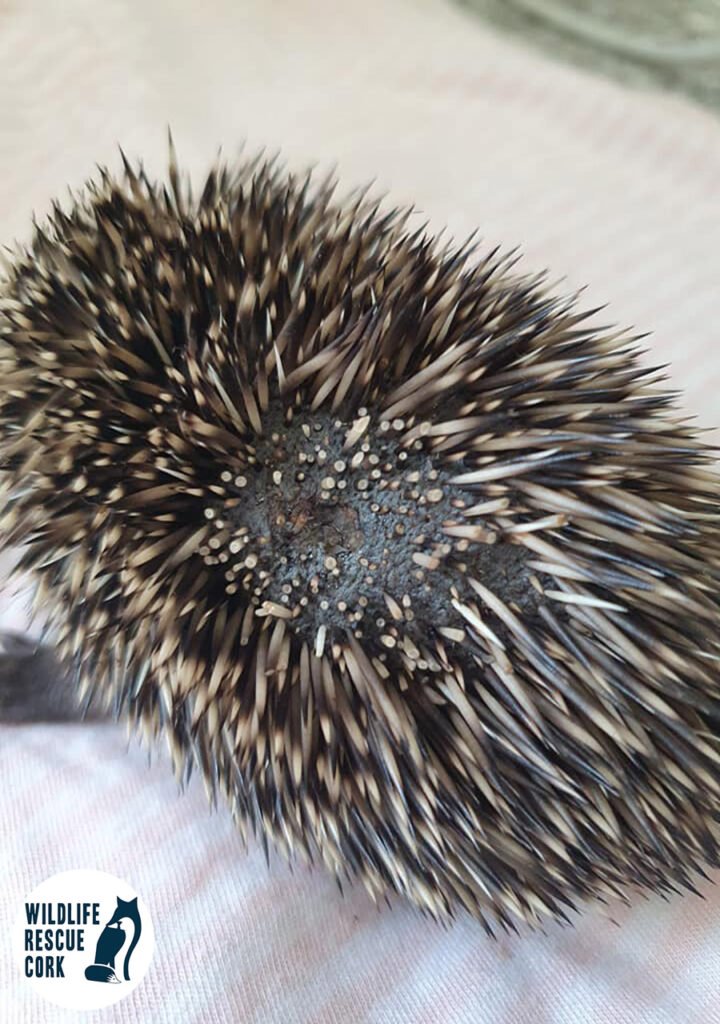
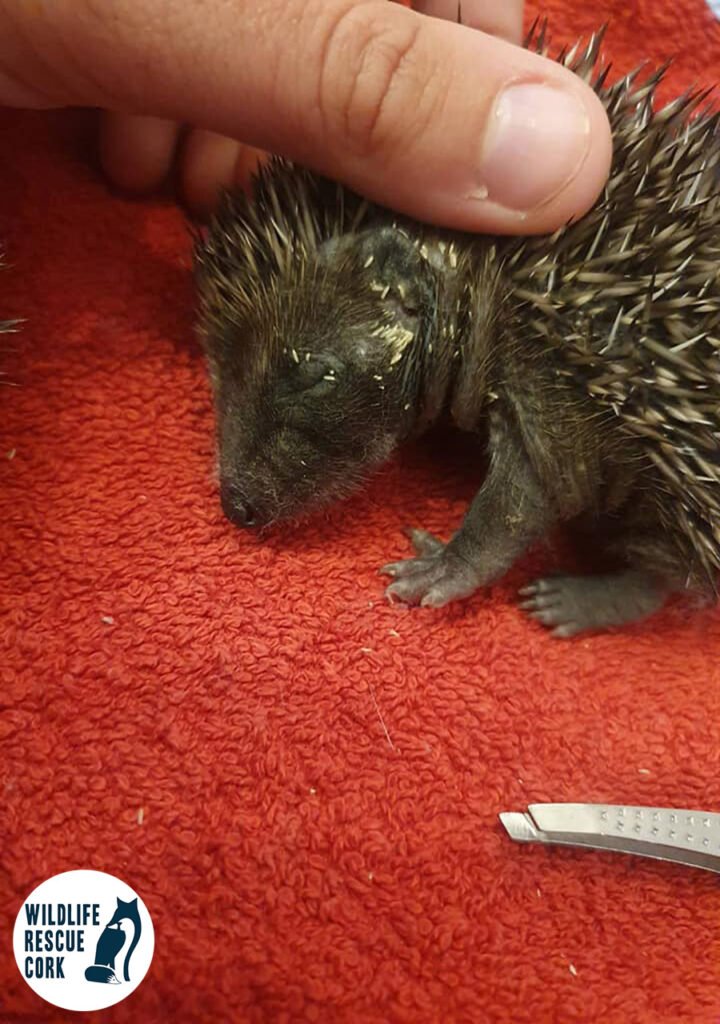
• Leave wild areas in the garden, you might like a manicured garden but they don’t •
• Pile fallen leaves in a corner as they will rot down and become cover for bugs (food for hedgehogs), and will completely rot down in 12 months and form a lovely leaf mould for the garden. A win/win situation •
• Leave out a shallow dish of water for all wildlife, make sure you clean it regularly •
• Don’t use poison or pellets and don’t strim your garden •
• Keep your dogs on a lead when they are toileting at night to avoid incidents •
• Make up a winter hedgehog house and put it in the corner of your garden somewhere fully secluded and covered in. There are lots of options online to follow. Avoid any material that a leg can be caught in (such as brushwood) •
• If you want to support them by feeding, please note wildlife can become dependent on you rather than foraging. We recommend providing a small amount of food such as dry kibble (cat/kitten/puppy) or a wet cat food pouch. (NO MILK OR BREAD) •
• Just like in all animals overfeeding can be an issue causing obesity. An overweight hedgehog won’t be able to curl up and evade predators •
